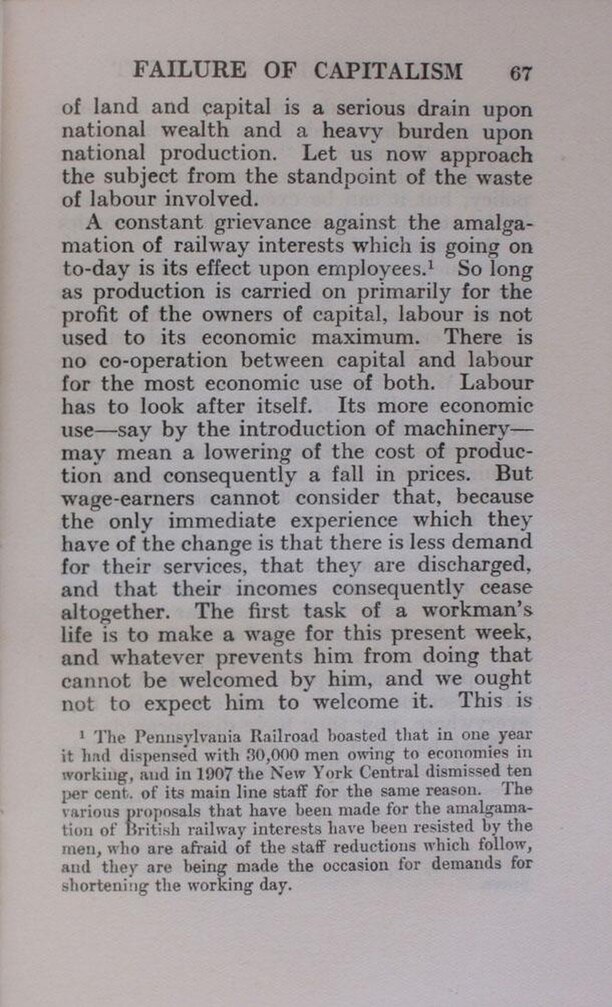of land and capital is a serious drain upon national wealth and a heavy burden upon national production. Let us now approach the subject from the standpoint of the waste of labour involved.
A constant grievance against the amalgamation of railway interests which is going on to-day is its effect upon employees.[1] So long as production is carried on primarily for the profit of the owners of capital, labour is not used to its economic maximum. There is no co-operation between capital and labour for the most economic use of both. Labour has to look after itself. Its more economic use—say by the introduction of machinery—may mean a lowering of the cost of production and consequently a fall in prices. But wage-earners cannot consider that, because the only immediate experience which they have of the change is that there is less demand for their services, that they are discharged, and that their incomes consequently cease altogether. The first task of a workman's life is to make a wage for this present week, and whatever prevents him from doing that cannot be welcomed by him, and we ought not to expect him to welcome it. This is
- ↑ The Pennsylvania Railroad boasted that in one year it had dispensed with 80,000 men owing to economies in working, and in 1907 the New York Central dismissed ten per cent. of its main line staff for the same reason. The various proposals that have been made for the amalgamation of British railway interests have been resisted by the men, who are afraid of the staff reductions which follow, and they are being made the occasion for demands for shortening the working day.
